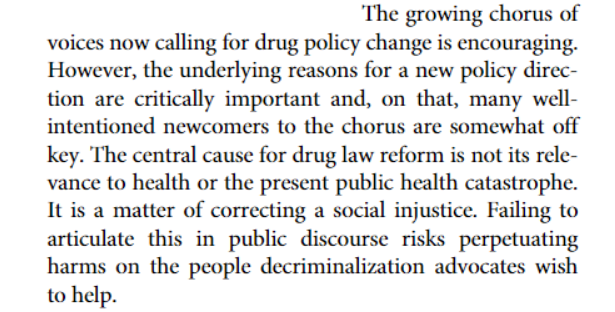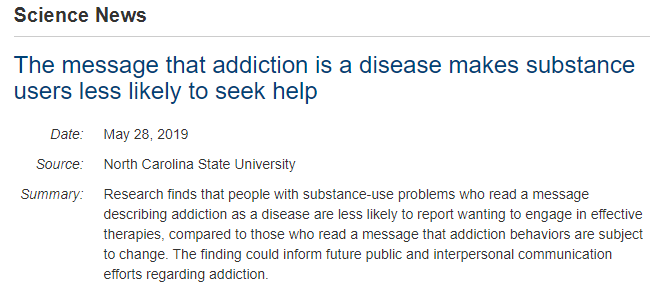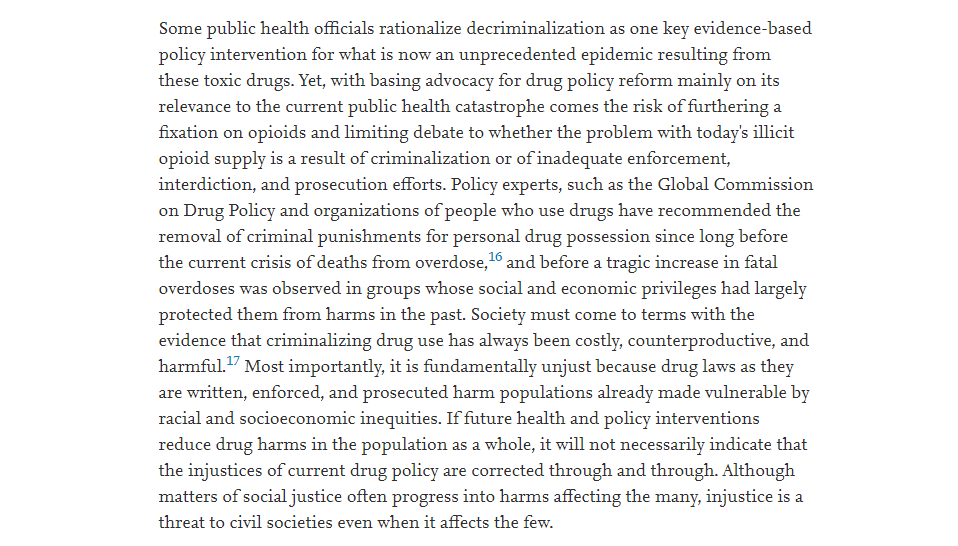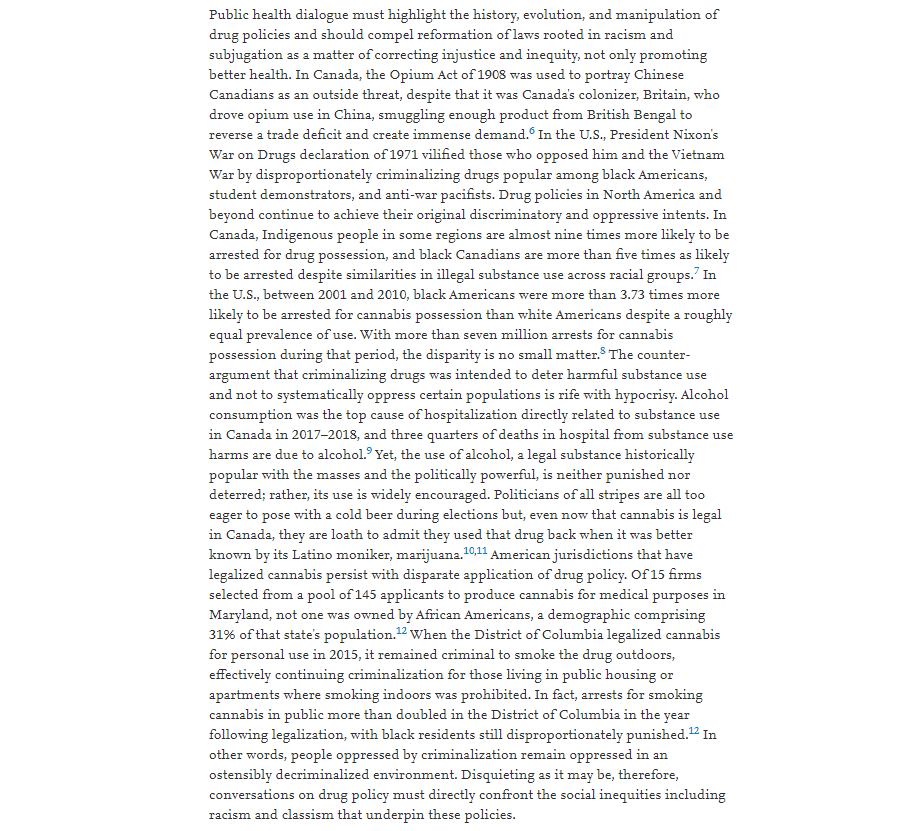We wrote this piece in the spring after BC's Chief Public Health doctor officially recommended decriminalization of drug possession. A @globeandmail editorial followed in support.
https://www.theglobeandmail.com/opinion/editorials/article-how-drug-decriminalization-could-help-stem-an-epidemic-of-drug/
We also support this drug policy reform. Strongly.
(a *BUT* ahead) /2
https://www.theglobeandmail.com/opinion/editorials/article-how-drug-decriminalization-could-help-stem-an-epidemic-of-drug/
We also support this drug policy reform. Strongly.
(a *BUT* ahead) /2
But rationale influences whether policy reform is effective, ineffective or harmful, and there are common, imprecise and troubling refrains in drug policy discourse. Often, it's clinicians and public health leaders perpetuating them. That's why we wrote in a medical journal.
/3
/3
On substance use as "a health issue":
"Health professionals are concerned with whether an individual has lost control over drug use, but people who use drugs often describe using them to tolerate structural circumstances over which they feel no control."
/4
"Health professionals are concerned with whether an individual has lost control over drug use, but people who use drugs often describe using them to tolerate structural circumstances over which they feel no control."
/4
Concentrating attention on individual behaviours and implying that solutions lie in the health/medical domain risks further disempowering people already experiencing diminished agency over life circumstances.
And it can reduce chances of seeking care.
https://www.sciencedaily.com/releases/2019/05/190528120324.htm
/5
And it can reduce chances of seeking care.
https://www.sciencedaily.com/releases/2019/05/190528120324.htm
/5
(It took me tens of thousands of patient presentations to see the problems with the "it's a disease" and "it's a health issue" messaging drummed in early. Even recently @davidjuurlink and I were perhaps a little casual with the latter line.)
https://www.thestar.com/opinion/contributors/2018/04/15/the-case-for-decriminalizing-drugs.html
/6
https://www.thestar.com/opinion/contributors/2018/04/15/the-case-for-decriminalizing-drugs.html
/6
Unroll all the replies to this poll and you'll see how our (health professionals') defenses of the "addiction is a disease" paradigm range from vicious to hackneyed.
It's a lot easier to call people pathologic than to call societies pathogenic.
https://twitter.com/hakique/status/1141375445427871744?s=20 /7
It's a lot easier to call people pathologic than to call societies pathogenic.
https://twitter.com/hakique/status/1141375445427871744?s=20 /7
On decriminalization and the drug poisoning epidemic:
"A rising body count does present an opportunity in a callous political world to advance progressive drug policy..." but equating a simple reduction in total deaths with justice would be a major error. /8
"A rising body count does present an opportunity in a callous political world to advance progressive drug policy..." but equating a simple reduction in total deaths with justice would be a major error. /8
On race:
Failing to directly confront structural racism, classism and other inequities that underpin drug policies, "people oppressed by criminalization remain oppressed in an ostensibly decriminalized environment."
(Follow @DrIbram for more on this) /9
Failing to directly confront structural racism, classism and other inequities that underpin drug policies, "people oppressed by criminalization remain oppressed in an ostensibly decriminalized environment."
(Follow @DrIbram for more on this) /9
Also follow the experts in this Twitter Moment, some from the "organizations of people who use drugs who have recommended the removal of criminal punishments since long before the current crisis" that we refer to in our paper.
https://twitter.com/i/events/1207023131321237504
https://twitter.com/i/events/1207023131321237504
"Incremental change" and "better is good" are catchy, practical sounding phrases.
But drug policy change not centred by big social justice goals may even exacerbate the structural inequities that continue manifesting themselves in ways no civil society should accept. /10
But drug policy change not centred by big social justice goals may even exacerbate the structural inequities that continue manifesting themselves in ways no civil society should accept. /10
And now, I get to end this thread in a way I've always wanted to end a thread. See this from Young Hov himself, Jay Z.
Sincerely,
Hak V. https://www.nytimes.com/video/opinion/100000004642370/jay-z-the-war-on-drugs-is-an-epic-fail.html
Sincerely,
Hak V. https://www.nytimes.com/video/opinion/100000004642370/jay-z-the-war-on-drugs-is-an-epic-fail.html

 Read on Twitter
Read on Twitter





